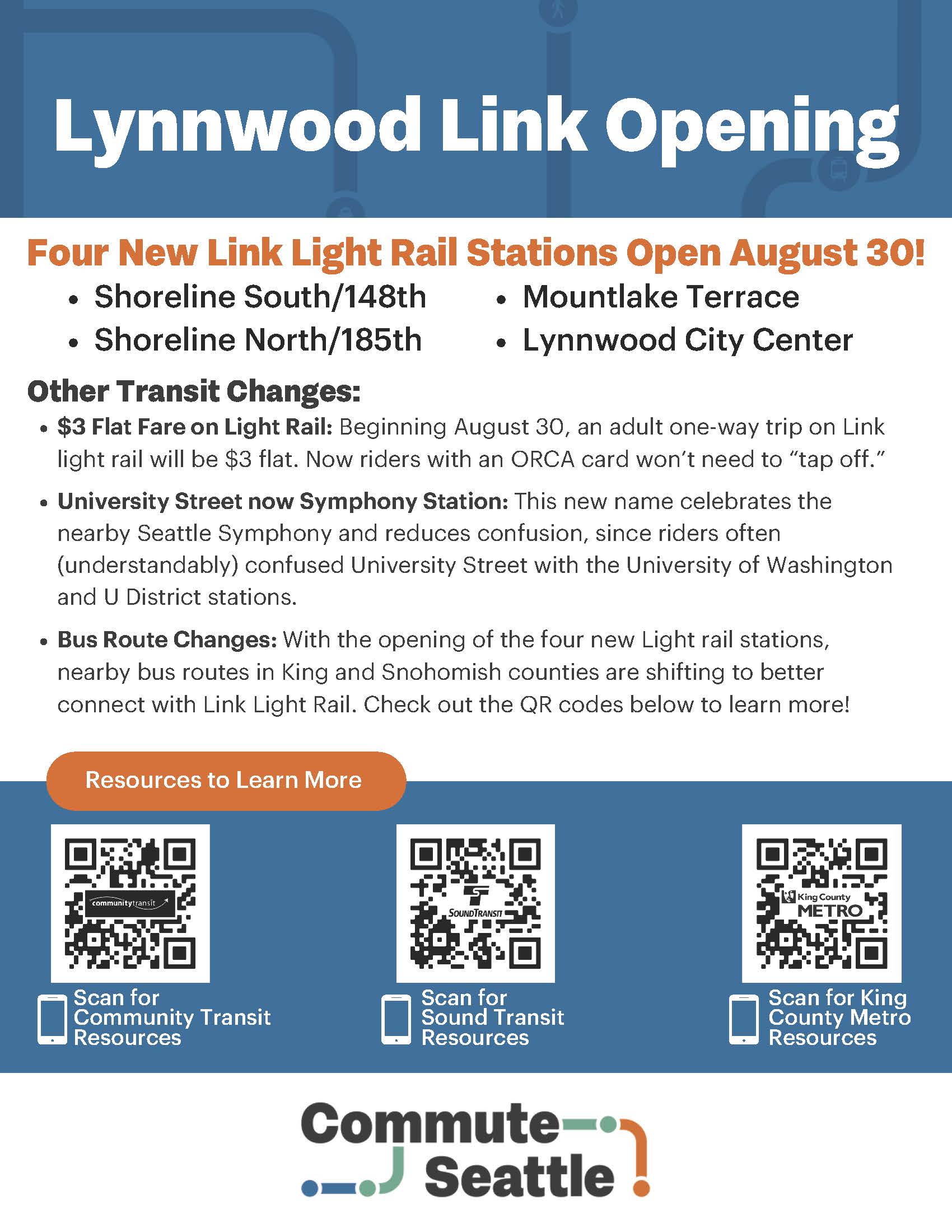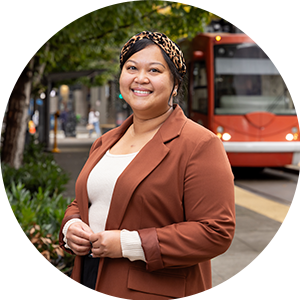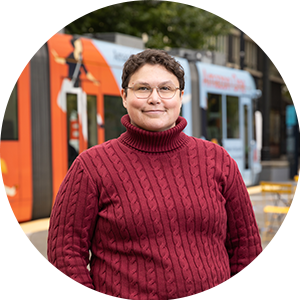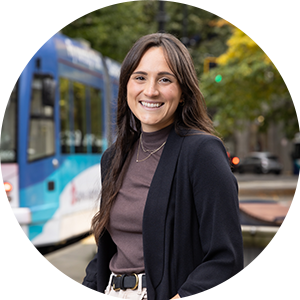Countdown to Lynnwood Link Opening
Day(s)
:
Hour(s)
:
Minute(s)
:
Second(s)
Beginning August 30th, travelers in Seattle will have access to four new light rail stations and new ways to walk or roll around each one! Find information about route changes, access improvements, and what closures may impact commuters here. Climate-friendly modes of travel are key to avoiding gridlock and reaching the city’s sustainability goals, so Commute Seattle is here to help!
-
- Four new stations:
- Lynnwood City Center
- Mountlake Terrace
- Shoreline North/185th
- Shoreline South/148th
- Length: 8.5 miles, 4 stations
- Service: Every 8 – 10 minutes* during peak hours
- Projected ridership: 47,000 – 55,000 daily riders by 2026
- Projected travel times:
-
- Lynnwood to Westlake (downtown Seattle): 28 minutes
- Shoreline South/148th to University of Washington: 11 minutes
- Mountlake Terrace to SeaTac: 56 minutes
-
- Four new stations:
* Will increase to every 4 – 6 minutes when the 2 Line fully opens in 2025.
Quick Links:
- Sound Transit: Lynnwood Link Extension
- King County Metro: Service Change
- Community Transit: Transit Changes in 2024 & Beyond
- Sound Transit: Changes coming to Sound Transit: What you need to know
“The opening day [of the Lynnwood Link extension] is going to be a major step in acknowledging the significant investments of our taxpayers and our vision for giving people more options to get to where they need to go.” Read Full Article
Other Upcoming Changes You Should Know About:
Flat Fee Fare change: Beginning August 30, the one-way Link light rail fare for adults will be a flat $3, regardless of distance traveled.
Symphony Station name change: University Street Station in downtown Seattle will be renamed Symphony Station. This will reduce the number of station names with the word “university,” adding clarity, improving wayfinding, and highlighting the nearby Benaroya Hall, home of the Seattle Symphony.
Station Codes: To make navigation more accessible, station pictograms will be replaced with three-digit station codes on the 1 Line. All stations will have a three-digit numerical code to help riders with limited proficiency in English or low literacy navigate the system. While many riders might not use these codes, for those who need them, they represent a huge leap forward in making our transit network easier to understand and use.
How to Support Commuters:
- Offer incentives for those who commit to climate-friendly modes of traveling
- Make transit accessible by providing ORCA passes
- Promote bicycle perks and amenities
- Change parking policy to prioritize bikes/e-bikes, Vanpool, carpool, and visitors

How We Can Help:
We can help your business craft customized commute solutions. We offer free consulting services to any business in Downtown Seattle. Services include but are not limited to employee surveys, policy crafting, implementation, management tools and educational seminars.



